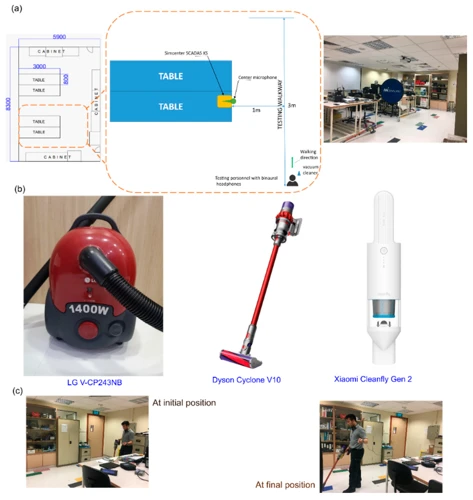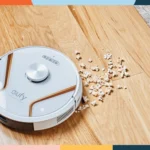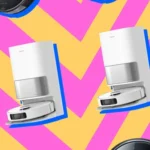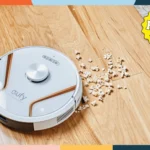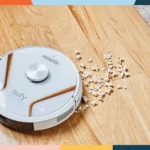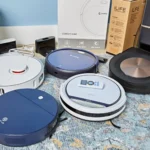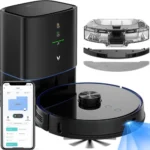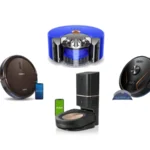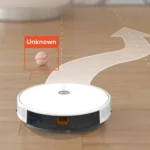Are you tired of the deafening noise that traditional vacuum cleaners create while you try to clean your floors? Do you ever wonder why these machines are so loud, and if there’s a solution to this problem? Look no further, because smart vacuums have been changing the game with their advanced technologies and quieter motors. But first, let’s explore why traditional vacuums are so loud in the first place.
Why Traditional Vacuum Cleaners are So Loud
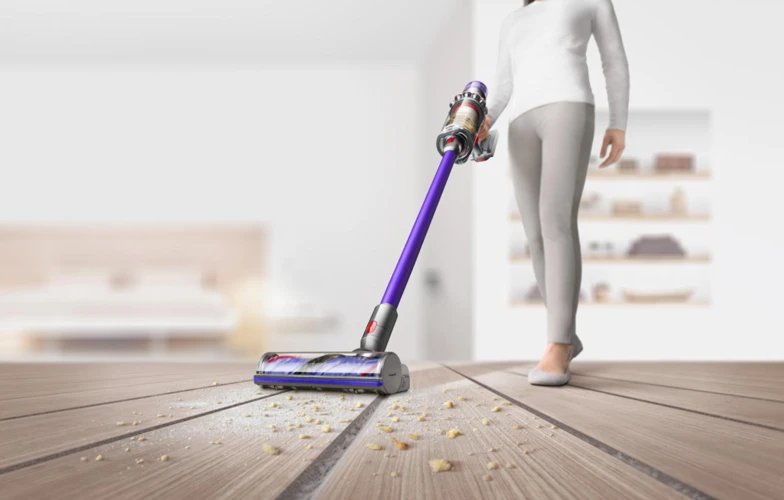
When it comes to cleaning our homes, vacuum cleaners are an essential tool that many of us rely on. However, have you ever noticed how loud and disruptive traditional vacuum cleaners can be? It can be frustrating having to deal with the noise and difficulty of maneuvering around tight corners, especially when it feels like you’re not getting the results you want. Let’s explore the reasons behind these loud machines and see if there’s a solution.
Motor Size
The motor size is a critical factor that affects the noise level of traditional vacuum cleaners. Larger motors tend to produce more noise compared to smaller ones. As the motor size increases, so does the suction power of the vacuum. This explains why many traditional vacuums are loud, as they need a powerful motor to provide efficient cleaning.
Powerful motors consume more energy, which can result in higher energy bills. This is a vital consideration for homes that are striving to reduce their energy consumption, especially those with smaller living spaces.
Another issue with large motors is that they are usually too bulky to fit in compact vacuum cleaners. This can make it challenging to clean hard-to-reach areas like stairs and corners, which require a smaller vacuum. It also leads to inefficient cleaning of carpets and rugs.
To compensate for these downsides, manufacturers have started making smaller, high-performance motors. These motors can provide the same suction power as larger ones while emitting less noise. By using smart technologies, they can now control the motor’s speed and brush roll to optimize cleaning and reduce noise levels.
Motor size plays a crucial role in the noise levels of traditional vacuums, leading to various problems like higher energy consumption, limited access to tight spaces, and inefficient cleaning of carpets and rugs. Thanks to advancements in technology, vacuum cleaner manufacturers can now offer more efficient and quieter vacuum options.
Vacuum Bag or Canister
One important factor that contributes to the loud noise produced by traditional vacuum cleaners is the type of vacuum bag or canister used in the machine. While some vacuum cleaners have a bag that collects dust and debris, others have a canister that stores them. Here are some details about each:
| Vacuum Bag | Vacuum Canister |
|---|---|
| Vacuum bags make it easy to dispose of the collected dust and debris, as you can just throw away the bag when it is full. | A vacuum canister requires regular cleaning, as the collected debris needs to be emptied into a waste bin manually. This can be a hassle, particularly for people with allergies that make them prone to sneezing, coughing or itching. |
| However, vacuum bags can clog easily if not changed or emptied regularly, which can cause the machine to work harder and use more energy, leading to higher energy consumption. | On the other hand, vacuum canisters require less frequent cleaning and therefore do not clog easily. However, they tend to be noisier than vacuum bags because they often have a smaller motor and fewer soundproofing features. |
| When vacuum bags are full, they can also reduce the suction power of the vacuum cleaner, making it less efficient and increasing the time needed for cleaning. | However, unlike vacuum bags, vacuum canisters allow users to see the levels of debris collected, making it easier to know when to empty and therefore reducing the likelihood of suction power loss. |
It’s important to note that both types of vacuum cleaners can contribute to health hazards if not maintained properly. For instance, if vacuum bags are not changed often, they can cause a buildup of bacteria and fungi that can be harmful to health.
Choosing a vacuum cleaner with a bag or canister depends on personal preference and cleaning needs, and it’s worth considering factors such as ease of use, energy consumption, and noise level.
Lack of Soundproofing
One of the main reasons why traditional vacuum cleaners are extremely loud is their lack of soundproofing. The noise produced by the motor of a vacuum cleaner can be reduced with the help of proper soundproofing, which is often overlooked in traditional vacuum cleaners.
An average traditional vacuum cleaner produces noise levels of about 70-80 decibels, which is equivalent to the noise level of a typical city street. This can be highly disruptive and annoying, especially if you’re trying to clean your house when everyone is asleep. Lack of soundproofing in traditional vacuum cleaners can also lead to hearing damage over time, which can affect your overall health and well-being.
To understand the impact of soundproofing on vacuum cleaners, let’s take a closer look at the different types of materials and techniques that can be used to reduce noise levels. The following table illustrates the different techniques that can be used to reduce the noise generated by a traditional vacuum cleaner:
| Soundproofing Technique | Description |
|---|---|
| Acoustic Insulation | Installation of materials such as foam or rubber between the motor and the body of the vacuum cleaner to absorb the noise |
| Anti-Vibration Technology | Use of specially designed rubber mounts and shock absorbers to reduce vibration and noise |
| Noise-Canceling Technology | Uses microphones and speakers to cancel out noise at the source |
| Design Improvements | Modifying the shape, size and airflow of the vacuum cleaner to reduce noise levels |
While traditional vacuum cleaners lack soundproofing features, smart vacuum cleaners use a combination of these techniques to produce a noise level that is significantly lower than traditional vacuums. These improved technologies have made smart vacuums a popular choice among consumers who want a cleaner home without the hassle vacuum cleaning.
Let’s explore how smart vacuum cleaners have changed the game in the next section.
How Smart Vacuums are Changing the Game
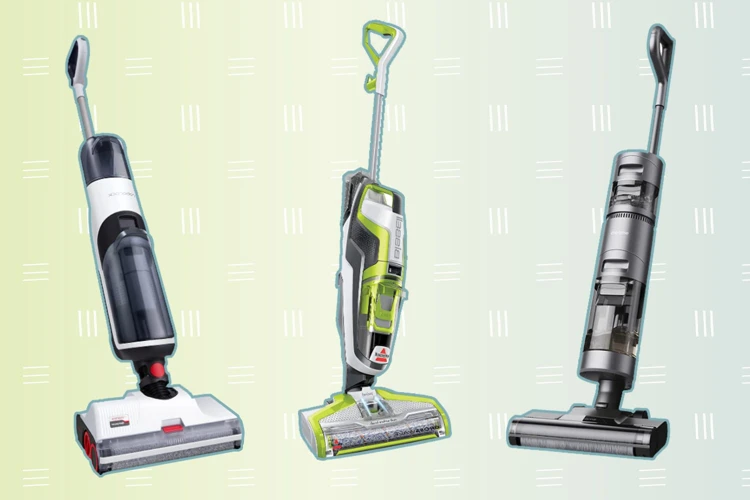
The vacuum cleaner has been an essential tool for keeping homes clean for years. However, traditional vacuum cleaners can be loud, bulky, and time-consuming to operate. Fortunately, the emergence of smart vacuums is revolutionizing the industry. These high-tech devices offer improved technologies, quieter motors, and soundproofing features, allowing for efficient and silent cleaning. In this section, we will explore how smart vacuums are changing the game of vacuum cleaning to make it a hassle-free and enjoyable experience.
Improved Technologies
Smart vacuum cleaners are equipped with improved technologies that make them a preferred choice over traditional vacuum cleaners. These cutting-edge technologies have been integrated into the design of these intelligent cleaning machines to deliver a top-notch performance.
1. Infrared sensors: Smart vacuum cleaners have infrared sensors which enable them to detect obstructions and avoid them. These sensors can also detect when a room is clean and move on to the next one or stop cleaning altogether. This helps to save energy while still getting the most thorough clean possible.
2. Self-charging batteries: One of the biggest challenges of traditional vacuum cleaners is that they often have to be plugged into a power outlet in the wall. Smart vacuums come with self-charging batteries that allow them to recharge automatically when the battery life is low.
3. Voice control: Smart vacuums have integrated voice control, allowing you to control your robot vacuum without having to physically interact with it. This hands-free feature is particularly handy when you’re in a hurry or have other things to do.
4. App control: Smart vacuums can be controlled through an app. This feature allows you to start and stop the vacuum, set cleaning schedules, and adjust settings while you’re away from home.
5. Compatibility with smart home devices: Smart vacuums are typically compatible with other smart home devices such as Amazon Alexa and Google Assistant. This compatibility allows you to integrate your vacuum into your smart home ecosystem, making it easier to manage your home’s cleaning and other tasks.
These technological improvements have revolutionized the cleaning industry and have made cleaning much more manageable and less of a hassle. With features like infrared sensors, self-charging batteries, and voice control, smart vacuums are changing the way we clean our homes. To learn more about hassle-free vacuum cleaning, click on the link to Hassle Vacuum Cleaning.
Quieter Motors
One of the reasons why smart vacuums are changing the game is because of their quieter motors. Traditional vacuum cleaners typically have motors that are quite loud, which can be a nuisance to people living in the house or apartment, as well as to neighbors. The volume is usually caused by the motor’s high RPMs and the air being forced through the vacuum’s filter and bag or canister.
Smart vacuums, on the other hand, utilize advanced technologies that allow them to operate at a lower level of noise. Most smart vacuums are designed to reduce motor noise while still delivering high suction power. They are made to operate at low decibels, usually under 65 dB, which is generally considered the threshold for safe noise levels.
Below is a table that shows the noise levels of some popular models of traditional and smart vacuums.
| Vacuum Model | Noise Level (decibels) |
|---|---|
| Traditional Vacuum A | 80 dB |
| Traditional Vacuum B | 75 dB |
| Traditional Vacuum C | 82 dB |
| Smart Vacuum X | 62 dB |
| Smart Vacuum Y | 65 dB |
| Smart Vacuum Z | 59 dB |
As you can see, the smart vacuums listed in the table have significantly lower noise output than the traditional vacuums. This is because they have been designed with quieter motors, but still provide excellent suction power. The lower noise levels make them a great option for those who have young children or pets in the house, as they will not get scared or disturbed by the vacuum’s noise.
In addition to their quieter motors, smart vacuums also have features such as self-regulated suction, which adjusts the suction power according to the surface being cleaned, and HEPA filters that trap dust, allergens, and other air pollutants. All of these innovative features come together to provide a more efficient and effective cleaning experience, without the hassle and noise of traditional vacuum cleaning.
The advancement in motor technology and better design of smart vacuums has significantly reduced the noise output while maintaining or even increasing their suction power. This is a game-changer for people who want a cleaning experience without sacrificing peace and quiet. With their quieter motors, smart vacuums provide a powerful and efficient solution to the needs of modern households.
Soundproofing Features
Smart vacuums have integrated soundproofing features, which allow them to operate at a lower noise level than their traditional counterparts. Here are some of the most common soundproofing features you can find in smart vacuums:
- Extra insulation: Smart vacuums have thicker insulation layers, which reduce the noise that comes from the motor and other moving parts. The insulation layer also helps to absorb vibrations and prevent them from getting transmitted to the floor.
- Noise-absorbing materials: Some smart vacuums are crafted with materials that help to absorb sound waves. For example, materials like foam and rubber can be placed on the vacuum cleaner’s motor, fans and other moving parts to reduce the noise generated during vacuum cleaning.
- Brushless motors: Unlike traditional vacuum cleaners that rely on motors with brushes to operate, smart vacuums use brushless motors, which produce less noise. Brushless motors create less friction, and hence, generate fewer vibrations and noise than brushed motors.
- Variable suction power: Unlike traditional vacuum cleaners that operate at a single speed, smart vacuums have an adjustable suction power. This allows you to lower the suction power when cleaning delicate surfaces, which helps cut down on the noise.
All these soundproofing features work together to dampen the noise made by smart vacuums, creating a quieter and more peaceful cleaning experience. If you’re looking to lessen the hassle of vacuuming in your home, then investing in a smart vacuum cleaner with reliable soundproofing features is definitely worth considering.
Benefits of Using a Smart Vacuum Cleaner
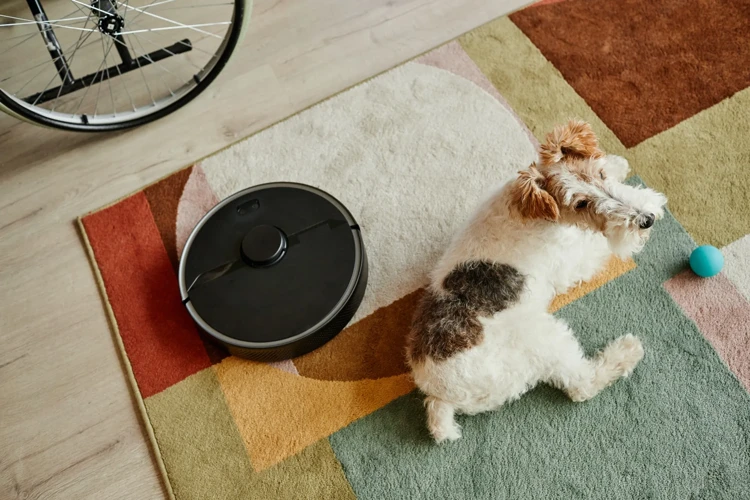
If you’re tired of lugging around a bulky vacuum cleaner that emits ear-piercing noise, it’s time to discover the remarkable benefits of utilizing a smart vacuum cleaner. These innovative devices not only offer noise reduction and greater efficiency, but also help to save precious time in your everyday cleaning routine. Let’s dive into the advantages of using a smart vacuum cleaner in greater detail.
Noise Reduction
One of the biggest concerns when it comes to vacuum cleaners is the noise they produce. Thankfully, smart vacuums are helping to tackle this issue by being designed with noise reduction in mind. Here are some ways in which smart vacuums achieve noise reduction:
- Improved motor technology: One of the main culprits of vacuum noise is the motor. However, smart vacuums are designed with quieter motors that still have strong suction power to get the job done efficiently.
- Innovative soundproofing: Smart vacuums also come equipped with innovative soundproofing features, such as insulation and specifically designed airflow systems, which help to reduce noise levels.
- Silence mode: Some smart vacuums have a specifically designed “silence mode” that reduces the noise output even further to ensure that cleaning can be done without disturbing others in the vicinity.
By using a smart vacuum with noise reduction capabilities, you’ll be able to enjoy a more comfortable and peaceful cleaning experience, without having to worry about disturbing others.
Efficiency
Efficiency is one of the most significant benefits of using smart vacuum cleaners. These advanced devices come equipped with a range of powerful features designed to make cleaning as efficient as possible. Here are some ways smart vacuums can help you achieve maximum efficiency in your cleaning routine.
- Multifunctional cleaning: Smart vacuum cleaners come with multiple cleaning modes that allow you to switch between cleanup modes, such as mopping, sweeping, and vacuuming–all with the same device. This feature saves time and energy while effectively cleaning your floors.
- Automatic scheduling: These vacuum cleaners have the ability to be programmed to start cleaning on a set schedule. This allows you to set up the device to clean when you’re not around, saving you time and effort.
- Mapping and navigation: Many smart vacuums can map the layout of your home and move around with precision. This feature allows the device to find the most efficient cleaning path, thus minimizing cleaning time and effort.
- Powerful suction: Smart vacuums come equipped with highly advanced suction technology that can pick up even the smallest piece of debris from your floors. This means less work for you and a cleaner home overall.
- Filtering and dustbin: Smart vacuums often feature high-efficiency particulate air (HEPA) filtering systems and large dustbins that can be emptied less frequently. This feature saves time and effort and ensures that the air in your home stays clean.
These advanced features make smart vacuum cleaners highly efficient devices that can save you a lot of time and effort in your cleaning routine. By investing in one of these devices, you can have more time to devote to other tasks while your home stays clean and tidy.
Time-saving
One of the most notable benefits of using a smart vacuum cleaner is the significant time savings it provides. Smart vacuums are designed to be incredibly efficient when it comes to cleaning floors, carpets, and upholstery, which means they can automate a time-consuming chore that would otherwise eat into your schedule.
With a smart vacuum, you can simply set it up to clean your home at a specific time or on a regular schedule, and it will take care of the rest without any further input required from you. This allows you to focus on other tasks and responsibilities without worrying about vacuuming your home yourself.
Here are some ways in which smart vacuums can save you time:
- Automated Cleaning: Smart vacuums are built with advanced sensors and software that allow them to navigate around obstacles and clean your home autonomously. This means that you can go about your day while the vacuum handles the cleaning.
- No Manual Labor: Traditional vacuum cleaners require you to push and pull them around your home, which can be tiring and time-consuming. With a smart vacuum, you don’t have to lift a finger, as it will do all the work for you.
- Faster Cleaning Time: Smart vacuums are designed to clean more efficiently than traditional vacuum cleaners, which means they can clean your home faster while still providing high-quality results.
- Less Maintenance: Smart vacuums often have features like self-emptying bins, which means you don’t have to stop and empty the dustbin every time it gets full. This can save you a significant amount of time and hassle.
If you’re someone who struggles to find the time to clean your home thoroughly, a smart vacuum cleaner can be an excellent investment. Not only will it help you maintain a cleaner home, but it will also give you the freedom to focus on other tasks and activities that matter to you.
How to Choose a Smart Vacuum Cleaner
Choosing the right smart vacuum cleaner can be a daunting task, given the plethora of options available in the market. With a range of features to choose from at different price points, it’s easy to feel overwhelmed. However, taking the time to consider the noise output, specific features, and budget can go a long way in simplifying the decision-making process. In this section of the article, we’ll delve into these factors and provide insights to help you make an informed choice. Let’s get started!
Consider the Noise Output
When choosing a smart vacuum cleaner, it’s important to put into consideration the noise output. Nobody wants a loud vacuum cleaner that disturbs the peace in the house or even annoy the neighbours. Here are some points to put into consideration when choosing a quiet smart vacuum cleaner:
- Noise level: Look for a vacuum cleaner that operates at noise levels below 65 decibels. Such vacuums make very little noise and are perfect for people who work from home, have young children or pets, or just generally need a quiet environment for relaxation.
- Quiet mode: Some smart vacuum cleaners come with a quiet mode feature that reduces noise levels even further. Take this into consideration when choosing a vacuum cleaner to suit your needs.
- Type of motor: Some motors are naturally loud, while others are designed to produce little or no noise. Look for vacuums with brushless motors or ones advertised as “quiet.” These types of motors are almost always quieter than the traditional ones.
Considering the noise output of your vacuum cleaner is important so as to avoid disturbing others around you. Keep these points in mind when choosing a smart vacuum cleaner, and you’ll be able to find one that works perfectly and quietly for you.
Look for Specific Features
When shopping for a smart vacuum cleaner, it’s important to know which features to look for to find the perfect match for your home. Here are some specific features you should keep in mind:
- Mapping Capabilities: One of the most useful features that smart vacuums offer is mapping capabilities. This means that the vacuum can learn the layout of your home, and use that information to navigate around your space more efficiently. Look for vacuums that offer this feature and ensure they can handle any particular flooring type you may have.
- App Integration: Many smart vacuums come with their own apps, allowing you to control them even when you’re not at home using your smartphone. Some of these apps even include voice assistant integration, allowing you to control the vacuum with simple voice commands.
- Multiple Cleaning Modes: Different vacuums will have different cleaning modes, which can be used for different types of cleaning. Look for a vacuum that has a range of modes which suits your needs, ranging from spot cleaning to deep cleaning for carpets, interchangeably.
- Clean Time Estimations: One of the best things about smart vacuums is how they make life easier. If you’re looking for maximum efficiency, look for vacuums that estimate cleaning times so you know when the vacuuming is complete.
- Obstacle Detection: Gone are the days of the vacuum blindly bumping into furniture. Smart vacuums use a variety of sensors to detect obstacles and avoid them. Look for obstacles detection features in your potential smart vacuum to avoid any unwanted damage to your furniture.
There are other features you might want to keep in mind, like warranty and customer service. Regardless of what is most important to you, do some research to find the best options for your needs and budget. Keep in mind all the advantages of choosing a smart vacuum cleaner over a traditional one, and consider which features are most important to you to get the best cleaning solution for your home.
Budget
When looking to purchase a smart vacuum cleaner, it is important to consider your budget. There are a range of options available on the market, ranging from high-end models to more affordable options.
To ensure that you stay within your budget, it is recommended that you make a list of the features that are most important to you. This will help you narrow down your options and choose a vacuum that meets your needs without breaking the bank.
Here are some factors to consider when setting your budget:
- The brand of the vacuum
- The size and power of the motor
- The type of vacuum bag or canister
- The level of soundproofing
- The presence of additional features such as a HEPA filter or self-emptying bin
While it may be tempting to splurge on the most expensive option, it is important to remember that a higher price tag does not always guarantee better quality or performance. Conversely, opting for the cheapest option may result in a vacuum that is not suitable for your needs.
By setting a reasonable budget and sticking to it, you can ensure that you select a smart vacuum cleaner that is effective, efficient, and fits within your financial constraints.
Conclusion
In conclusion, it is evident that traditional vacuum cleaners are excessively noisy due to their motor size, vacuum bag or canister, and lack of soundproofing. This noise can not only be disruptive but can also be a source of stress and anxiety for some.
However, the emergence of smart vacuum cleaners has brought a new level of convenience, efficiency, and more importantly, reduced noise levels. The innovative technologies used in the development of smart vacuums, including quieter motors and soundproofing features, have significantly impacted the vacuum cleaner industry.
One of the most significant benefits of using a smart vacuum cleaner is the noise reduction it offers. With little to no noise output, people can clean their homes anytime without disturbing others. Smart vacuums are also more efficient, with features such as self-navigation and programming, thus reducing cleaning time and effort. The use of smart vacuums has also been found to be time-saving, freeing people to engage in other activities.
When choosing smart vacuums, it is essential to consider the noise output, look for specific features that meet your needs, and consider your budget. There are several options available in the market, ranging from the expensive, sophisticated models to the more affordable, basic models.
In a nutshell, smart vacuum cleaners are changing the game in the vacuum cleaning industry, providing a more efficient, convenient, and noise-free cleaning experience than traditional vacuum cleaners. Investing in a smart vacuum is a wise decision for anyone looking to make cleaning more enjoyable and stress-free.
Frequently Asked Questions
1. What causes traditional vacuum cleaners to be so loud?
Traditional vacuum cleaners are loud due to the size of their motor, the lack of soundproofing, and the vacuum bag or canister.
2. How do smart vacuum cleaners differ from traditional ones?
Smart vacuums typically have improved technologies, quieter motors, and soundproofing features.
3. Can I expect a noticeable reduction in noise level by switching to a smart vacuum?
Yes, you can expect a significant reduction in noise level by switching to a smart vacuum cleaner.
4. What technologies are used in smart vacuum cleaners?
Smart vacuums incorporate technologies such as AI, machine learning, and obstacle detection sensors that enable the vacuum to navigate around obstacles.
5. How does soundproofing work in smart vacuums?
Smart vacuums feature noise reduction technology such as sound-absorbing materials to reduce the noise level.
6. How much quieter are smart vacuum cleaners compared to traditional vacuums?
Smart vacuum cleaners are significantly quieter than traditional vacuum cleaners, with some models boasting noise levels below 60 decibels.
7. Are smart vacuum cleaners more efficient than traditional ones?
Yes, smart vacuum cleaners are more efficient than traditional vacuums due to their advanced technologies and navigation systems.
8. Can I control a smart vacuum cleaner through my smartphone?
Yes, most smart vacuum cleaners can be controlled through a smartphone app, allowing for remote control and scheduling of cleaning sessions.
9. Do smart vacuum cleaners cost more than traditional vacuums?
Smart vacuum cleaners are typically more expensive than traditional vacuums due to their advanced technologies and features.
10. What should I consider when choosing a smart vacuum cleaner?
When choosing a smart vacuum cleaner, you should consider the noise output, specific features such as obstacle detection and mapping, and your budget.
